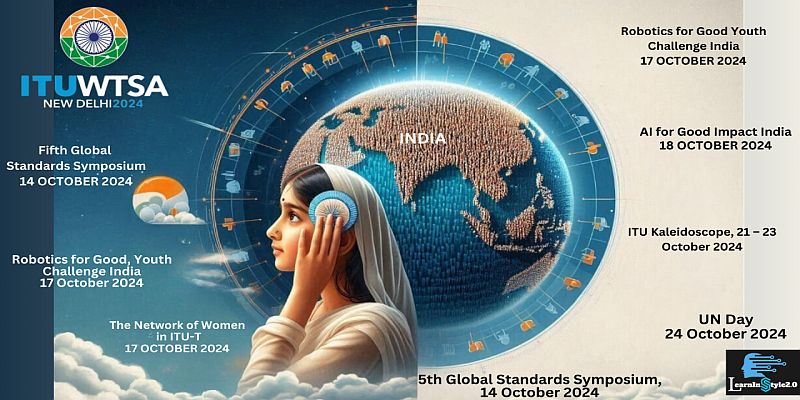African Preparatory Meeting for the World Telecommunication Standardization Assembly 2024 (WTSA-24)

Throughout my discussions with stakeholders in Africa's telecoms and ICT community, it has become clear that Africa is committed to addressing key issues that significantly impact our people and the broader region. Many of these crucial topics will be on the table during World Telecommunication Standardization Assembly 2024 (WTSA-24).
One of our primary concerns is bridging the standardization gap in order to ensure equitable technological advancements across the continent. In our work here, let us devise approaches that are tailored for Africa even as we seek to harmonize telecommunications standards to enhance cross-border interactions and ensure the interoperability of devices and systems.
This alignment will lead to economies of scale, making digital services more affordable for consumers and ensuring widespread socioeconomic benefits.
As a continent grappling with the significant impact of cybercrime, which costs African economies upwards of $3.5 billion annually, we must urgently advocate for robust cybersecurity measures. It is our duty to protect Africa's digital infrastructure against the escalating threat of cyberattacks and some of the draft proposals to be discussed here speak to this important issue which we will also need to align to global interests in the matter at the WTSA-24.
Of course, I speak of global interests because we cannot deny their existence. We have actively contributed to previous ITU-led Inter-Regional Meetings in January and July this year, and we are currently planning for the third inter-regional meeting later in September. These meetings are necessary not only for aligning our strategies with other regions but also play a bigger role of helping us understand how our contributions fit into broader global goals.
Equally critical is the matter of transitioning from IPv4 to IPv6, as only 1% of networks in Africa are IPv6-enabled, compared to the global average of 29%. ATU has developed policy guidelines for the migration from IPv4 to IPv6; and as we continue advocating for per-country adoption, WTSA-24 will serve as a platform to address pending issues regarding this migration.
Let us ensure we achieve these goals, as this transition will support the growing number of internet users and devices and give us the opportunity for better connectivity and futureproofing our networks. Furthermore, combating spam and e-waste remains significant challenges. We reckon that the importation of substandard and counterfeit devices leads to a shorter lifespan and increased e-waste, posing environmental and health risks. The threat of e-waste management is becoming real and catastrophic, with Africa projected – and well on course - to generate about 12.4 million metric tons of e-waste by next year.
I urge our cooperation in developing robust regulatory and policy frameworks for sustainable growth and encouragement of innovation. As a collective effort, this will guarantee that all countries in Africa benefit from improved digital services, increased innovation, and job creation. ATU is devoted to supporting strong regulatory and policy initiatives in the area of standardisation and some of the draft proposals that will be discussed here aim to achieve that purpose. Together, we can position ourselves to drive meaningful progress and secure a prosperous digital future for all.
It's important to also note that as we head to WTSA-24, the terms of current chairs and vice chairs of key ITU-T study groups are ending, and consideration of new chairs and vice-chairs for 2025-2028 will be a key agenda item at WTSA-24. As part of our preparatory process, we have already received proposals from the membership in this regard. We have a duty to rally behind African candidates and ensure our representation and influence in global telecommunication standardization efforts.
I finally urge us to embody the spirit of flexibility and unity as we anticipate endorsing the African Common Positions for the WTSA-24. These positions are about our collective regional interests and objectives, rather than individual or national agendas. While we may not agree on everything, committing to AfCPs means strengthening our regional cooperation and securing a resilient digital future for all African nations.
By Mr.John Omo,
Secretary-General of the African Telecommunication Union (ATU)
